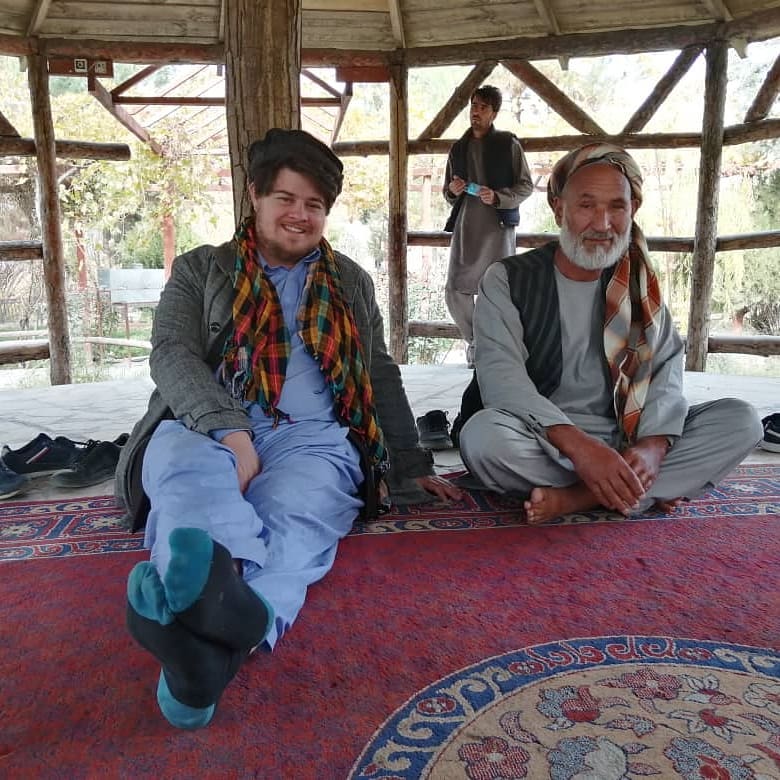Central Asia is arguably one of the toughest regions in the world to be a vegetarian. While many difficult cultures will joke that they are big meat eaters, Central Asians really are the kings of meat eating. Still today, in several of the post-Soviet republics, individuals can be referred to physiatric screening as vegetarianism is still believed by many to be a medical condition. We run mean Central Asia group tours each year and have a lot of experience navigating the vegetarian diet in this fantastic region.
Central Asia’s food culture is rooted in nomadic traditions, making meat, lamb, beef, horse, and mutton, central to most dishes. Staples like beshbarmak (boiled meat with noodles) and plov (rice pilaf with meat and animal fat) dominate, and even seemingly vegetarian sides often use meat broth or lard. Dairy, like yogurt and cheese, is common, posing challenges for vegans. Locals may not understand vegetarianism, with many not considering chicken or fish as “meat.”
Rural areas, especially homestays, offer limited options, often just bread or cheese, while cities like Almaty, Bishkek, and Tashkent have ethnic restaurants (Uyghur, Dungan, Indian) with more choices. Vegetarians must plan ahead: carry nuts, dried fruits, or energy bars; learn Russian phrases like “bez myasa” (without meat) and “bez masla” (without butter. Strict adherence is tough with some travellers deciding to compromise to avoid hunger or offending hosts, and vegans struggle most due to dairy prevalence. Below is a country-by-country guide with verified vegetarian and vegan dishes based on local practices.
Kazakhstan
Kazakh cuisine revolves around meat, especially horse and lamb in beshbarmak. Rural areas offer little beyond bread, porridge, or cheese, and even soups may contain meat stock. Cities like Almaty and Astana have Indian or international restaurants, but misunderstandings about “no meat” are common. Raw vegetables can cause stomach issues.
- Oroma : Like a large pie with pumpkin or potato filling; normally has meat but vegetarian options available.
- Potato manty : Steamed dumplings with potato and onion; as Manty normally has meat, you have to make sure you get a vegetarian version.
- Baursak : Fried dough balls; plain versions are vegan, often with jam.
- Talqan : Roasted barley porridge; vegan if no dairy added.
- Vegetable salad : Basic tomato-cucumber mix; request cooked versions to avoid water risks.
Kyrgyzstan
Kyrgyz food prioritizes mutton in dishes like lagman and shashlik. In rural yurt camps, options are often bread or dairy-based, and soups may hide meat. Bishkek and Karakol have Uyghur and Dungan eateries with vegetable dishes, but dairy is widespread. Communication barriers make strict vegetarianism difficult.
- Maida manty : Small steamed dumplings with mashed potato; vegetarian, vegan if no butter.
- Ashlanfu : Cold starch noodles in vinegar-chili sauce with herbs; typically vegan, confirm no meat broth.
- Vegetarian lagman : Stir-fried noodles with peppers, carrots, cabbage; request no meat or stock for vegan.
- Oromo : As in Kazakhstan, this dish is traditionally filled with meat, but vegetarian options exist. A large steamed pie, with similar characteristics as a dumpling.
- Achik-chuchuk : Tomato-onion salad
Uzbekistan
Uzbekistan, with its Silk Road tourism, offers more options in cities like Tashkent, Samarkand, and Bukhara, where bazaars provide fresh produce and some restaurants have vegetarian dishes. Plov is traditionally meat-based with animal fat, so avoid assuming vegetarian versions. Rural areas limit to bread or risky salads. Confirm no meat fat in all orders.
- Pumpkin samsa : Baked pastry with pumpkin and onions; vegetarian, check for meat versions.
- Sote : Steamed vegetables like eggplant and peppers; usually vegan.
- Shivit oshi : Green dill noodles with potato stew; request no yogurt for vegan.
- Tukhum barak : Egg-filled ravioli; vegetarian, not vegan.
- Achik-chuchuk : Tomato-onion salad
Turkmenistan
Turkmenistan has the least vegetarian awareness, with lamb in shashlyk and chorba soup. Ashgabat’s bazaars offer fruits like melons, but rural areas have almost no options. Dishes often use meat fat, and vegetarianism confuses locals, making it the hardest country.
- Pumpkin gutap : Baked pies with pumpkin; vegetarian, request no meat fat for vegan.
- Potato samsa : Pastry with potato filling; vegetarian, confirm no meat.
- Batyrma : Vegetable stew with yogurt; vegetarian, skip yogurt for vegan.
- Chekdirme : Potato-tomato-onion bake; vegan if no meat broth.
- Yarma : Vegetable porridge when cooked without meat. Tasty but difficult to find as a vegetarian dish.
Tajikistan
Tajik cuisine includes Persian-inspired herbs and produce, but meat is common in Pamir soups. Dushanbe has Indian restaurants; rural homestays often serve dairy or meat-based dishes. Vegans must clarify no yogurt or cheese. Fresh fruits like pomegranates help.
- Qurutob : Flatbread with yogurt, tomatoes, onions, cucumbers; vegetarian if no meat, not vegan.
- Pumpkin sambusa : Baked samosas with pumpkin; vegetarian, check for meat.
- Damlama : Stew with eggplant, peas, zucchini; often vegan.
- Mushkichiri : Bean and lentil stew; vegan if no meat added.
- Shakarob : Tomato-onion salad with yogurt; vegetarian, omit yogurt for vegan.
Vegetarianism in Central Asia is very challenging due to meat-centric diets, limited rural options, and cultural gaps in understanding dietary needs. Bazaars and ethnic eateries provide relief, but constant vigilance and portable snacks are critical for success.
For more in-depth travel information on Central Asia, check out the
destination guides
we have for each Central Asian Republic on our webiste.
If you're looking to join us on a
5 Stans
, 4 Stans or just even one of these cool countries, then send us an email to [email protected] to secure your place on a group tour. Group tours not your thing? Let us know where you want to go and we can organise a private itinerary for you for any of our destinations.



